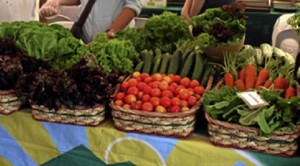More and more people turning to veggies as staple food
The recent Public Radio International coverage revealed that over 50 million Chinese, particularly the young generation, are now vegetarian due to the growing awareness on the negative environmental impact brought about by meat production (beef, pork, chicken and other animal products like dairy, eggs and cheese). Health and compassion were also cited in the report as significant contributing factors.
Long Kuan, an early follower of urban China’s growing vegan trend, was quoted as saying that “it started when global warming was a big issue, and I looked into information about food’s impact on the environment.”
Livestock farming accounts for the use of 70 percent of global freshwater and 38 percent of land-use conversion.
Seventy percent of the Amazon Rainforest, for instance, has already been cleared for grazing and feed crop production.
The “Livestock and Climate Change” published in the World Watch magazine reported that livestock and their byproducts actually account for at least 32.6 billion tons of carbon dioxide per year, or 51 percent of annual worldwide GHG (greenhouse gases) emissions.
A report of the United Nations Environment Program said that as the global population surged toward a predicted 9.1 billion by 2050, Western tastes for diets rich in meat and dairy products would be unsustainable.
As animal products have brought a significant effect on the planet, numerous studies have shown how damaging animal products could be to the human body.
Greater risk of heart attack
A study published in the New England Journal of Medicine showed that a byproduct of dietary choline, a component abundantly present in animal products, can lead to greater risk of heart attack, stroke and death in humans.
The Physicians Committee for Responsible Medicine pointed out that since human bodies produce its own cholesterol for its everyday needs, the body does not actually need external sources.
The committee revealed that cholesterol is found in all foods that come from animals: red meat, poultry, fish, eggs, milk, cheese, yogurt and every other meat and dairy product.
Choosing lean cuts of meat does not spare anyone from cholesterol. Chicken contains as much cholesterol as beef, as every four-ounce serving of beef or chicken contains 100 mg of cholesterol.
Nutrition expert Rea Frey, International Sports Sciences Association-certified trainer and author of the book “Power Vegan,” suggested ways to curb cravings for meat, keep one full, and give the same amount of protein, vitamins and minerals per serving that could be found in meat.
• Seeds (substitute for chicken or turkey). Whether they’re pumpkin, sunflower, chia, flax, sacha inchi, or hemp seeds, one can get around eight grams of protein per one-fourth cup (33 grams), along with countless nutrients.
• Legumes (substitute for beef). Examples are peas and beans. Per one cup (177 grams) serving of beans (kidney, black, garbanzo or lentils), one gets 16 to 28 grams of protein, along with iron, a good source of fiber, and neglible fat. These are also high in B vitamins, rich in antioxidants, and low on the glycemic index. Use in soups, chili, or salads or shape into patties and serve in place burgers. Dried beans are the best (soak overnight and then cook the next day).
• Hemp (substitute for fish and eggs). Hemp is described by Frey as “an amazing plant protein full of essential fatty acids, fiber, and Vitamins B and E.” she added that it contains all of the essential amino acids.
• Other sources of protein include avocados, broccoli rabe, cocoa powder, cooked spinach, nutritional yeast, soybeans, split green peas and teff.















